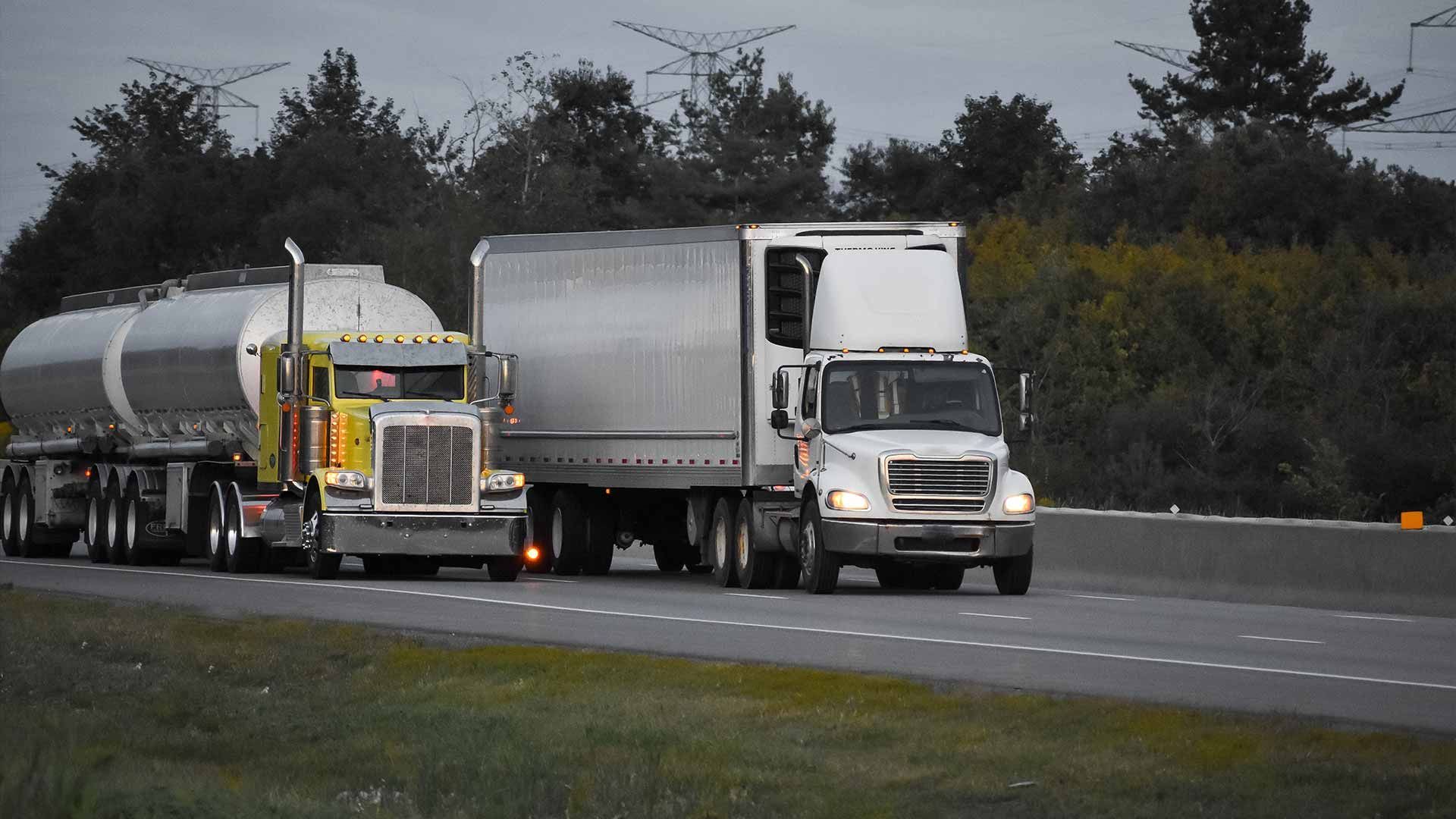CALL US TODAY! (806) 240-5206
CALL US TODAY! (806) 240-5206
How Technology Is Transforming Freight Broker Services in 2024
In the ever-evolving landscape of logistics and transportation, the role of the freight broker is undergoing a transformative journey in 2024. As technology advances at an unprecedented pace, it brings about significant changes in how freight broker services are rendered and experienced. This article delves into the exciting realm of How Technology Is Transforming Freight Broker Services in 2024, shedding light on the ways in which modern tools and innovations are reshaping the industry.
The freight broker plays a crucial intermediary role, connecting shippers and carriers, and facilitating the smooth flow of goods across the supply chain. In today's digital age, technology is not merely a supplement but a catalyst for efficiency, transparency, and competitiveness in the freight brokerage field. By the end of this article, you will gain insights into the technological forces at play, from artificial intelligence and blockchain to automation and data analytics, and how they are revolutionizing the world of freight brokerage. So, let's embark on this technological journey that is shaping the future of
freight broker services.
The Role of Artificial Intelligence (AI)
In 2024, artificial intelligence (AI) emerges as a powerful force reshaping the landscape of freight broker services. AI technologies are revolutionizing the way freight brokers operate, offering advanced tools and algorithms that enhance decision-making, efficiency, and customer satisfaction.
AI-driven solutions empower freight brokers with the ability to predict market trends, optimize routes, and fine-tune pricing strategies. For instance, AI-powered demand forecasting tools analyze historical data and real-time information to predict future demand accurately. This enables freight brokers to make informed decisions on capacity planning and pricing, ultimately leading to cost savings and improved service quality.
Additionally, AI algorithms can optimize routing by considering factors like traffic, weather conditions, and delivery windows. Such route optimization not only saves time but also reduces fuel consumption and carbon emissions, contributing to a more sustainable logistics ecosystem.
Moreover, AI chatbots and virtual assistants are enhancing customer interactions, providing quick responses to inquiries and automating routine tasks, such as booking shipments and tracking cargo. These technologies improve communication and operational efficiency, ensuring smoother transactions between brokers, shippers, and carriers.
In 2024, freight brokers leveraging AI technologies gain a competitive edge by delivering more accurate, efficient, and customer-focused services. As AI continues to evolve, its role in the freight brokerage industry is set to expand further, offering new possibilities and opportunities for growth.
Blockchain and Supply Chain Transparency
In the realm of freight brokerage services in 2024, blockchain emerges as a game-changer, ushering in a new era of transparency and trust in supply chains. Blockchain technology, originally developed for cryptocurrencies, has found its way into logistics and is fundamentally altering how freight brokers ensure accountability and reliability.
Blockchain acts as an immutable ledger that records every transaction and data point along the supply chain journey. This creates a transparent and tamper-proof record of all activities, from order placement to delivery confirmation. For freight brokers, this means increased visibility into the movement of goods, reducing the risk of disputes and fraudulent activities.
Smart contracts, a feature of blockchain technology, enable automated and self-executing agreements. These contracts ensure that terms and conditions are met, and payments are released promptly when predefined criteria are fulfilled. In the world of freight brokerage, this minimizes delays and disputes, leading to smoother and more efficient operations.
Furthermore, blockchain enhances traceability. In case of product recalls or quality issues, freight brokers can quickly trace the origin of goods, aiding in timely resolutions and preventing potential supply chain disruptions.
In 2024, embracing blockchain technology is not just a technological advancement; it's a step towards establishing trust and transparency in freight broker services. As this technology becomes more widespread, it's poised to reshape the industry's approach to security, accountability, and reliability in
supply chain management.
Automation and Digital Platforms
2024 witnesses a remarkable surge in automation and the prevalence of digital platforms in the freight brokerage industry. Automation, driven by technology, plays a pivotal role in streamlining operations, enhancing efficiency, and reducing human error.
Freight brokers are increasingly adopting automation for routine tasks such as order processing, documentation, and shipment tracking. Automated systems can process and manage vast volumes of data with speed and accuracy, eliminating the risk of manual errors and delays. This allows brokers to focus their time and expertise on strategic decision-making and customer relationships.
Digital platforms are transforming the way freight brokers connect with shippers and carriers. These platforms serve as marketplaces where businesses can access a vast network of transportation options, making it easier to find the right match for their cargo. Such platforms offer real-time visibility into available capacity, rates, and carrier performance, simplifying the logistics process.
The integration of automation and digital platforms is not only driving efficiency but also improving communication and collaboration across the supply chain. It enables real-time tracking, status updates, and instant communication between all stakeholders, leading to smoother and more responsive freight brokerage services.
In 2024, embracing automation and digital platforms is essential for freight brokers looking to remain competitive and offer seamless, data-driven logistics solutions. As these technologies continue to evolve, they will redefine the way business is conducted in the freight brokerage industry.
Data Analytics and Predictive Insights
In 2024, the power of data analytics takes center stage in the world of freight broker services. Data analytics, powered by advanced algorithms and tools, is transforming the way freight brokers gather, process, and leverage data to make informed decisions and gain a competitive edge.
Data analytics in freight brokerage involves the analysis of vast amounts of historical and real-time data to extract valuable insights and predict future market trends. For example, data analytics can forecast changes in demand patterns, helping freight brokers adjust their strategies accordingly.
By harnessing data analytics, freight brokers can optimize their operations, route planning, and pricing strategies. They gain a deeper understanding of customer preferences, allowing them to offer personalized and cost-effective solutions. Additionally, data-driven decision-making minimizes risks and maximizes profitability.
Moreover, predictive analytics tools enable freight brokers to anticipate potential issues such as delays, capacity shortages, or disruptions in the supply chain. By proactively addressing these challenges, brokers can provide a more reliable and efficient service to their clients.
In 2024, data analytics empowers freight brokers to stay ahead of the curve, offering enhanced visibility, efficiency, and value to their customers. As data analytics continues to evolve, it becomes an indispensable tool for informed decision-making and strategic growth in the
freight brokerage industry.
Cybersecurity and Data Protection
Amidst the technological advancements that shape the freight brokerage landscape in 2024, cybersecurity and data protection take center stage as critical concerns. As technology integration deepens, the need to safeguard sensitive freight data becomes paramount.
The digitalization of freight brokerage services means that a significant amount of valuable data, including shipment details, client information, and financial records, is stored and transmitted electronically. This digital ecosystem presents opportunities for malicious actors seeking to exploit vulnerabilities for financial gain or data breaches.
To counter these threats, freight brokers must prioritize robust cybersecurity measures. This includes implementing firewalls, encryption protocols, intrusion detection systems, and regular security audits. It's crucial to train staff and partners on best practices for data security and to ensure that all data is securely stored and transmitted.
Furthermore, compliance with data protection regulations such as GDPR (General Data Protection Regulation) and industry-specific standards is essential. Freight brokers should have clear policies and procedures in place for data handling, breach reporting, and incident response.
In 2024, as technology transforms freight brokerage services, a proactive approach to cybersecurity and data protection is not just a safeguard; it's a fundamental aspect of responsible and trustworthy service provision. Ensuring data integrity and security is not only a legal requirement but also a means of preserving the trust of clients and partners.
Future Outlook: Adaptation and Growth
As we look ahead to the future of freight broker services in 2024 and beyond, it's clear that the rapid integration of technology will continue to shape the industry. The freight broker's ability to adapt to these technological advancements will be key to ensuring growth, efficiency, and competitiveness.
The role of the freight broker has evolved from a traditional intermediary to a tech-savvy facilitator of logistics solutions. Embracing artificial intelligence, blockchain, automation, data analytics, and cybersecurity will not only be necessary but also advantageous. These technologies empower freight brokers to offer more efficient, transparent, and data-driven services to their clients.
While technology is a driving force, it's essential to remember that the core values of reliability, communication, and customer-centric service remain as important as ever. As the industry evolves, maintaining strong relationships with shippers, carriers, and clients will continue to be a cornerstone of success.
In 2024, the freight brokerage industry stands at the intersection of innovation and tradition. By embracing technology while upholding core principles, freight brokers can not only survive but thrive in this dynamic landscape. The future holds exciting opportunities for those who are willing to adapt and harness the full potential of technology in delivering top-notch
freight brokerage services.
Conclusion
In conclusion, the year 2024 ushers in a transformative era for the freight brokerage industry, driven by the relentless advancement of technology. The keyword freight broker no longer represents a mere intermediary but a technologically empowered facilitator of efficient and transparent logistics solutions.
The integration of artificial intelligence, blockchain, automation, data analytics, and robust cybersecurity measures has redefined the way freight brokers operate. These technological innovations enable faster decision-making, streamlined operations, and improved customer experiences.
However, amidst this technological revolution, the core values of reliability, communication, and customer-centric service remain unwavering. As the industry continues to evolve, it is imperative for freight brokers to maintain strong relationships with shippers, carriers, and clients, ensuring trust and satisfaction.
Looking to the future, the path to success lies in embracing technology while upholding fundamental principles. For those seeking reliable, technologically savvy freight brokerage services,
Texas Panhandle Logistics LLC is your trusted partner. Contact us today at
806-240-5206 to experience the seamless integration of technology and service excellence in freight brokerage. We are here to make your logistics journey in 2024 and beyond a success story.
FAQs
-
How is technology changing the role of a freight broker in 2024?
Technology is transforming the role of freight brokers by introducing advanced tools like AI, blockchain, and automation, enabling more efficient operations, better decision-making, and enhanced customer service.
-
What are the benefits of using artificial intelligence (AI) in freight brokerage services in 2024?
AI offers benefits such as demand forecasting, route optimization, and pricing strategies. It improves efficiency, accuracy, and the ability to make data-driven decisions.
-
How does blockchain technology enhance transparency in the freight brokerage industry?
Blockchain ensures transparency by recording every transaction and data point along the supply chain, reducing disputes, fraud, and ensuring an immutable ledger of all activities.
-
What role does data analytics play in freight brokerage in 2024?
Data analytics helps in analyzing historical and real-time data to predict market trends, optimize operations, and offer data-driven insights for better decision-making.
-
How can freight brokers ensure data security and protect against cyber threats in 2024?
Freight brokers can protect data through robust cybersecurity measures, including firewalls, encryption, and compliance with data protection regulations. Regular training and audits are also essential.




Navigation Links
Hours of Operation
- Mon - Fri
- -
- Sat - Sun
- Closed
Closed on all major holidays for accounting - Available always for quotes
License: MC - 1092162
All Rights Reserved | Texas Panhandle Logistics LLC








